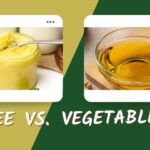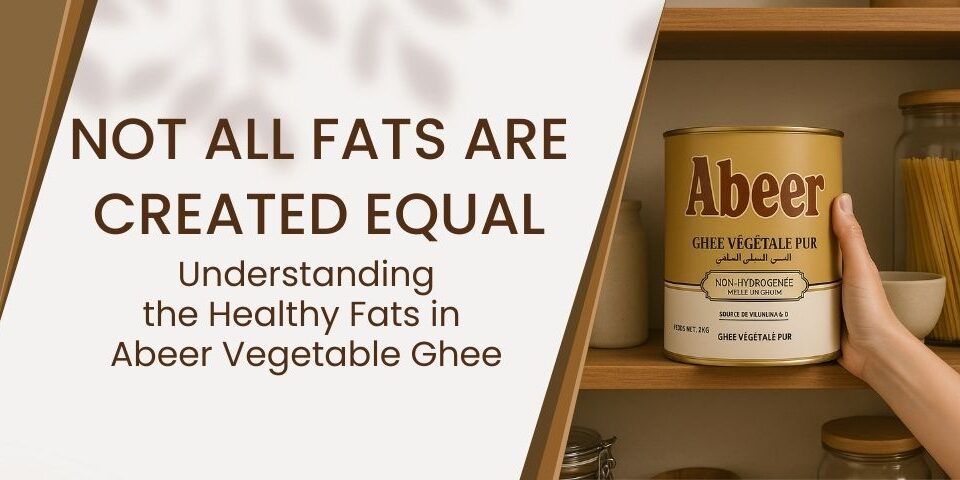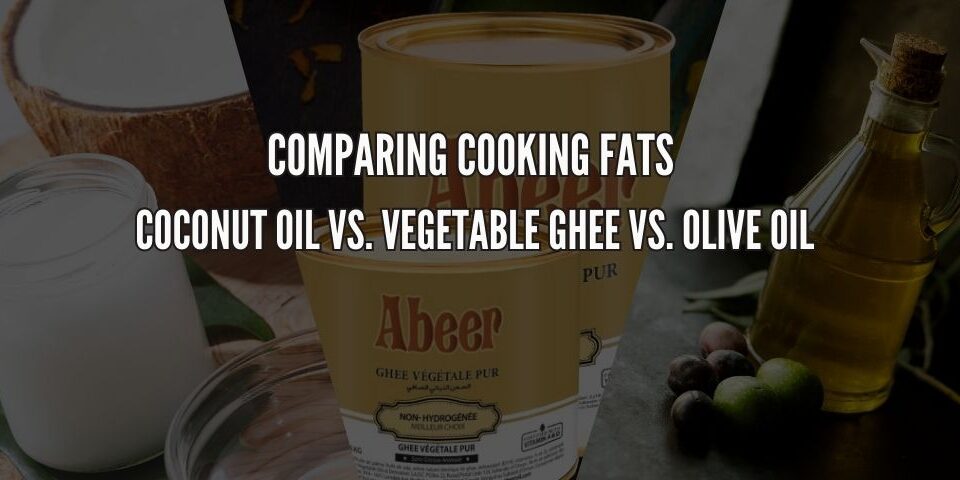
Quick and Tasty Vegetable Ghee Recipes
November 7, 2024
Ghee vs. Vegetable Oil: Which is Better for Health and Cooking?
November 21, 2024Animal Ghee vs. Vegetable Ghee: Key Differences and Health Benefits

Ghee has long been a staple in kitchens worldwide, particularly in South Asian and Middle Eastern cuisines. Traditionally made by clarifying butter, animal ghee has a rich history of use in culinary and medicinal practices. But with growing interest in plant-based diets, vegetable ghee has emerged as an alternative, offering similar uses without the dairy. This article explores the differences, health benefits, and cooking uses of animal and vegetable ghee to help you choose the best option for your needs.
What is Animal Ghee?
Animal ghee, commonly made from cow or buffalo milk, is a clarified butter rich in fat-soluble vitamins such as A, D, E, and K. Through the clarification process, water and milk solids are removed, resulting in a pure fat that’s known for its creamy texture, golden color, and savory flavor.
Animal ghee has been used in Ayurveda for centuries, praised for its nourishing qualities. In cooking, it’s beloved for adding a rich, nutty flavor and a high smoke point, which makes it ideal for frying, roasting, and baking. Beyond culinary use, animal ghee is also known for its healing properties, with some proponents claiming it supports digestion, boosts immunity, and promotes skin health.
What is Vegetable Ghee?
Vegetable ghee is a plant-based alternative to animal ghee, typically made by hydrogenating plant oils like palm, coconut, or soybean oil. This process turns liquid oils into a solid fat that mimics the texture of traditional ghee. It’s popular among vegans, people with dairy allergies, or those looking for an alternative without animal-derived ingredients.
Unlike animal ghee, vegetable ghee usually has a milder flavor, which makes it versatile for various cuisines. Depending on the type of oils used, vegetable ghee can also have a higher proportion of unsaturated fats, which may be beneficial for heart health. This dairy-free option is suitable for baking, frying, and sautéing, making it a flexible choice in both savory and sweet dishes.
Health Benefits of Animal Ghee vs. Vegetable Ghee
When it comes to health benefits, both types of ghee have unique qualities:
- Animal Ghee
- Rich in Vitamins: Contains fat-soluble vitamins A, D, E, and K, which support immune health, vision, and bone strength.
- Conjugated Linoleic Acid (CLA): This natural compound found in animal ghee is known for its anti-inflammatory properties and may help in maintaining a healthy metabolism.
- Digestive Health: Animal ghee is believed to support digestion by stimulating stomach acid production, which can aid in better nutrient absorption.
- Vegetable Ghee
- Cholesterol-Free: Unlike animal ghee, vegetable ghee contains no cholesterol, making it an option for people managing cholesterol levels.
- Unsaturated Fats: Vegetable ghee typically contains more unsaturated fats (depending on the oils used), which can support heart health and may lower LDL (bad) cholesterol.
- Vegan and Dairy-Free: This plant-based option is ideal for those with lactose intolerance, dairy allergies, or anyone following a vegan diet.
Flavor and Cooking Uses
- Animal Ghee
- Known for its rich, nutty flavor, animal ghee is often favored in traditional South Asian, Middle Eastern, and Mediterranean recipes. Its high smoke point (around 485°F or 250°C) makes it ideal for frying, roasting, and sautéing, as it won’t burn easily.
- Vegetable Ghee
- Vegetable ghee has a subtler flavor compared to animal ghee, which makes it a versatile cooking fat that won’t overpower other ingredients. It also has a high smoke point, making it suitable for a wide variety of cooking methods.
Environmental Impact and Sustainability
Sustainability and environmental impact are important considerations for many consumers today, and the choice between animal and vegetable ghee can influence these factors:
- Animal Ghee
- Dairy production, including ghee, can have a significant environmental footprint. Livestock farming requires large amounts of land, water, and feed, and is associated with greenhouse gas emissions.
- Vegetable Ghee
- Vegetable ghee, when sourced from sustainably harvested plant oils, can have a smaller environmental impact. However, some vegetable ghees are made from palm oil, which has its own environmental concerns. Choosing a vegetable ghee made from sustainably sourced oils can be a more eco-friendly option.
Which Ghee Should You Choose?
The choice between animal and vegetable ghee depends on your dietary preferences, health needs, and ethical considerations:
- Choose Animal Ghee If: You’re looking for a nutrient-rich, traditional fat with a distinct flavor that adds depth to your cooking. It may be more suitable for those who prioritize natural, unprocessed fats and are not strictly plant-based in their diet.
- Choose Vegetable Ghee If: You follow a vegan lifestyle, have lactose intolerance or a dairy allergy, or are looking for a cholesterol-free option. Vegetable ghee is also a good choice for those concerned about the environmental impact of animal products.
Both animal and vegetable ghee offer unique benefits and are versatile cooking fats that can fit different dietary and lifestyle needs. Animal ghee stands out for its traditional nutritional benefits and rich flavor, while vegetable ghee provides a dairy-free alternative with lower environmental impact when sustainably sourced. Ultimately, the choice comes down to your personal health goals, ethical beliefs, and culinary preferences.



